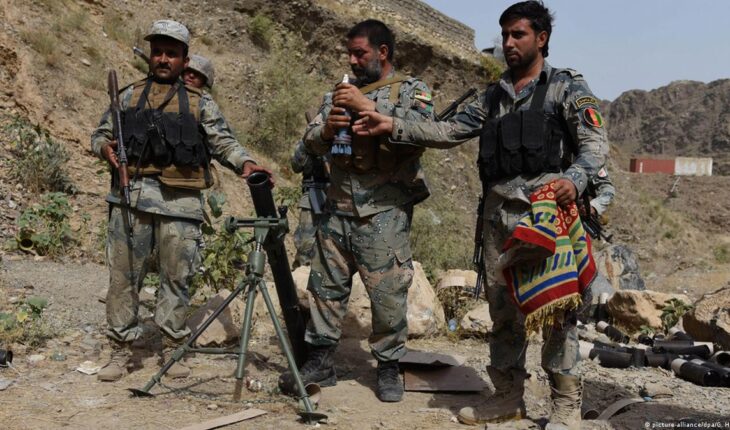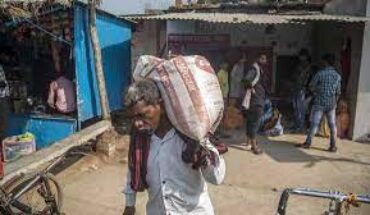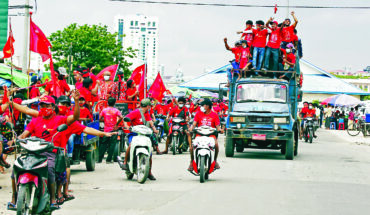India’s Headache Since 1971
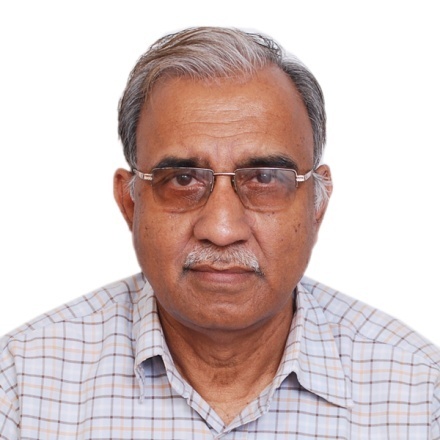
The on-going clashes since September 6 on the Afghan-Pakistan borders have caused worries in New Delhi, if not anxiety, that how are they going to impact the already fragile security environment in the region. The situation appears to be heading towards a worst scenario following the reports of a large scale military’s crackdown on the Afghan refugees in Karachi. India through diplomatic channels has been pleading with the democratic world that the repression of the hapless Afghan refugees should immediately be stopped. It should also be examined from a larger perspective, especially the confrontation between the Pakistani army and Tehereek-i-Taliban Pakistan (TTP), which might lead to a large scale repercussion.
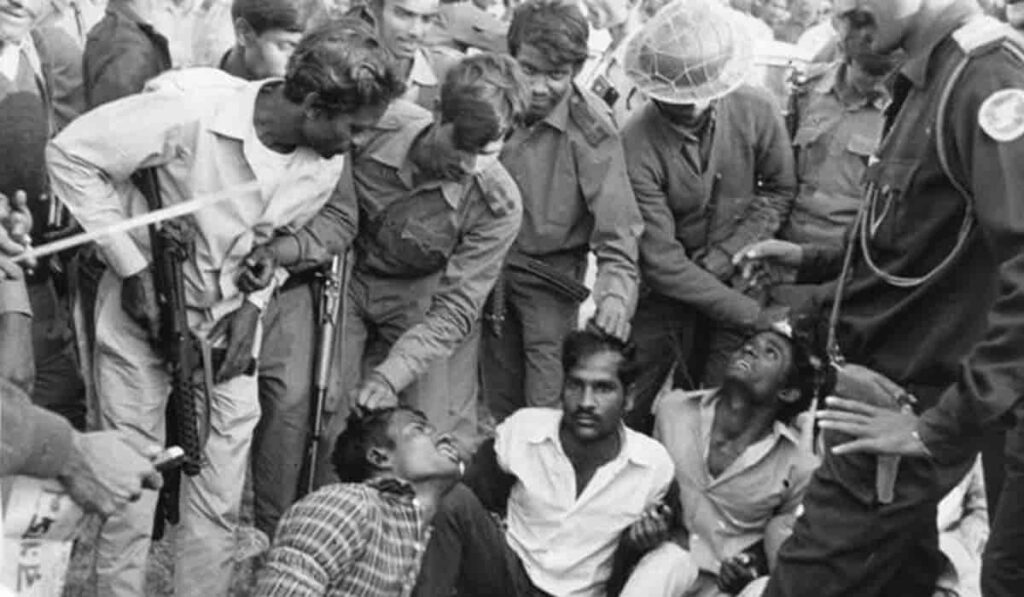
The Taliban Government in Kabul has not only denied the Pakistani allegation that the TTP is being backed by the Afghan Government, it has also been countered and have accused Islamabad for indulging in lies and double-speak. Therefore, the sudden eruption of the Khalistan issue having full support of Pakistan needs to be examined from a larger security perspective of the region, point out Indian strategic affairs experts. It is also being stated that following the exit of the USA from Kabul, China’s influence in the region has further increased.
The trust deficit between Afghanistan and Pakistan has further caused anxiety in the region. In this context, the biography of the Pakistani military dictator, General Pervez Mushrraf, is being frequently quoted that much funds in dollars had been raised by Pakistan from America by handing over the underground Taliban leaders to the Americans in lieu of millions of US dollars. The case of Abdul Salam Zaeef, the Taliban ambassador to Pakistan, was handed over to American agents, just after the September 11th attacks on New York.
With a large number of the Afghan refugees in India, the deteriorating Pak-Afghan relationship would also be impacting India. Islamabad’s open support to Khalistanis could be an effort to divert the world’s attention from the bigger crisis brewing between the two countries. The recent crack-down by the army on the Afghan refugees in Karachi might become human tragedy. It is estimated and also according to a UN report, the numbers of the Afghan refugees are being estimated to be about 15000, but the actual figures could be in lakhs. Many among them might seek asylum in India. Already a large number of them are staying in India on emergency visas.
Pakistani Army’s Hard-line –For the Indian strategic affairs experts, the grim situation is getting further alarming with the each passing day, especially following the adoption of the hard-line against Kabul being adopted by the generals in Rawalpindi, the headquarters of the army. Earlier, it was hoped that the new army chief, Asif Munir, would finally succeed in winning back the confidence of the Afghan Taliban and a permanent truce might finally be arrived at between Islamabad and Kabul.
It appears that Asif Munir is busy in asserting his political role. He has already succeeded in installing Anwaar-ul-Haq Kakar, as caretaker PM. However, according to the watchers of the political and military developments in Pakistan, he has so far not been able to win confidence of army’s powerful factions once the erstwhile army chief, Jawed Qamar Bajwa and Faize Hamid. These two top military officers had always been enjoying confidence of the Taliban. If Bajwa is remembered as one of the most influential chiefs, Faize Hamid was one of the most effective chief of the Inter Services Intelligence (ISI). Both Bajwa and Faize Hamid are known to be having excellent ties with Kabul, but the present incumbent in the ISI, Nadeem Ahmed Anjum, does not enjoy the proximity his predecessor have had with the Taliban.
Similarly, Kakar’s elevation as PM, who is from Baluchistan and a first-time senator, could not obtain much support from the strife-torn province, Khyber Pakhtunkhwa(KPK), where the TTP has emerged as a major political force. The former PM Imran Khan’s party, Pakistan Tehreek-e-Insaf (PTI), has been ruling the province for several years, is not opposed to TTP. Similarly, Jamiat Ulema-e-Islam(F), which is running hundreds of schools or madarasas has students supporting TTP. Another influential political outfit in KPK is Awami National Party of Wali Khan, son of the legendary Abdul Gaffar Khan or Frontier Gandhi. It means that the Pakistani army does not have adequate political ground support in the region, where the TTP continues to occupy vast territories of Chitral.
Political Solution- Unless fresh polls are held and the two former prime ministers, Nawaz Sharif of Pakistan Muslim League –Noon and Imran Khan are allowed to contest , the army does not have adequate political support to deal with the strife. There is a trust deficit between Kakar and the people of KPK. He had initiated his political career in the Muslim League of the army dictator, General Pervez Musharraf. Earlier, he was groomed by the GHQ known for having closed door sessions with the country’s policy makers, briefings to the country’s political and military elite, sessions on building anti-Baluchistan narrative. Born in 1971, he is a post-graduate in political science and has been closely associated with the National Defence University, Islamabad.
Earlier, with a view to accommodate the regional aspirations of the people of the region, Islamabad had conceded the the erstwhile territories of the FATA in to the existing province of KPK. With this it has become multiethnic comprising Pashtuns, Hindkowans , Saraikis and Chitralis.
Indian Concerns -Earlier, KPK was a part of the all-inclusive Indian culture and was known as Gandhara. The ruins of its ancient capital, Pushkalvati still narrate its glorious past. It has frequently been mentioned in Vedic epics, including Rig Veda, Ramayana, and Mahabharata, and its valiant people had repulsed the invading army of Alexander. Before the colonial rule, it was under the secular regime of Maharaja Ranajit Singh, though British called him a Sikh ruler.
The region has always been a part of India. During the Mughal rule as well as under the British regime, the people from Afghanistan could freely move in the undivided India. It may also be noted that during the country’s freedom movement, the people of the region were on the forefront of the freedom struggle. Abdul Gaffar Khan, who is also remembered as Seemant Gandhi or Frontier Gandhi, one of the confidants of Mahatma Gandhi, had vehement opposed India’s partition in 1947.
It may be recalled that on January 20, 1988, much against the advice of the then Pakistani dictator, Zia-ul-Haq, Indian PM Rajiv Gandhi had flown to Peshawar to pay last respect to the Frontier Gandhi. He was accompanied by Sonia, and several Indian ministers. Late Abdul Wali Khan, son of the Frontier Gandhi, had launched the National Awami Party. Its current president is Asfandyar Khan, one of the grandsons of the Frontier Gandhi.
Tens of thousands of mourners attended his funeral including Afghan President Mohammad Najibullah, marching through the Khyber Pass from Peshawar towards Jalalabad, where he was later buried as per his wishes. He had never accepted division of Pakhtoon territories by the Durand Line, and the issue continues to haunt Pakistan-Afghan relations.
The failure of the 20-year US-led military operations in Afghanistan finally leading to the exit of the western power could not force the people of the war-ravaged country to succumb. It, however, led to a large number of refugees being poured into Pakistan. They are estimated to be in millions during decades of successive wars facing unprecedented hardships. Many among these refugees are reported to be living in peace in the aid camps with restricted access to education, healthcare and employment. It is estimated that 1.3 million are registered refugees and 880,000 more have legal status to remain in Pakistan, according to the latest United Nations figures.
The ongoing crackdown against the Afghan refugees, many among them living since two generations, in and around Karachi, are being implicated in false cases as drug trafficking or for smuggling in weapons. The crisis, according to the observers in New Delhi, might further deepen leading to a much-bigger eruption of violence. It is being apprehended that any large scale confrontation between Afghanistan and Pakistan might not only disrupt the fragile peace in the region, it would adversely be affecting India too.
Gopal Misra has been associated with national and international media. His books on journalism and geo-politics have been well-appreciated. Views are personal.


